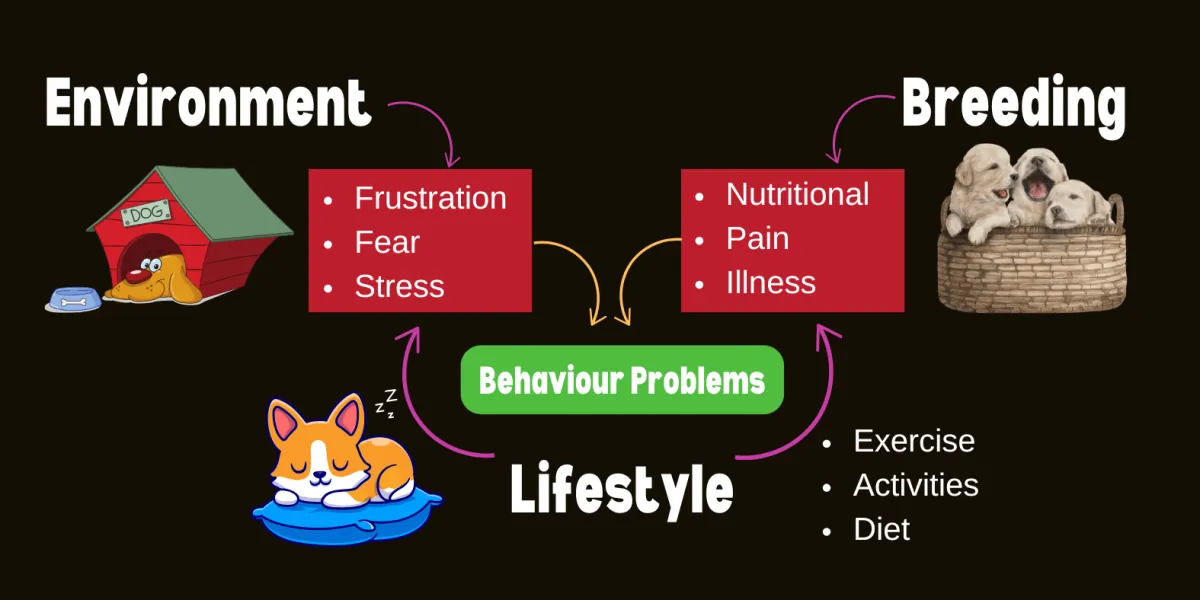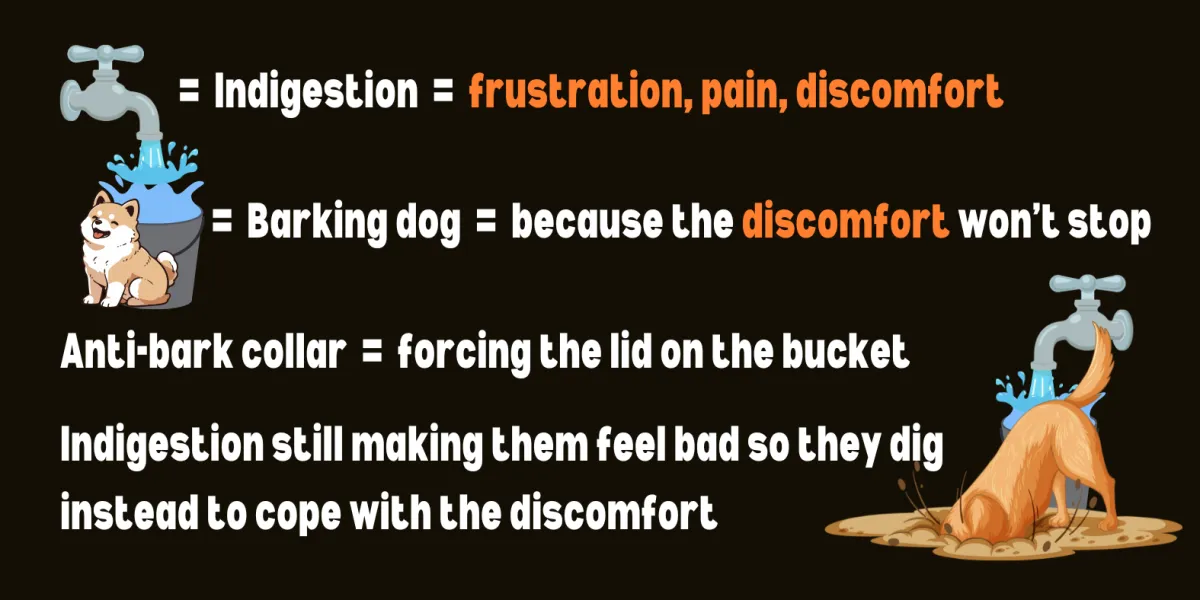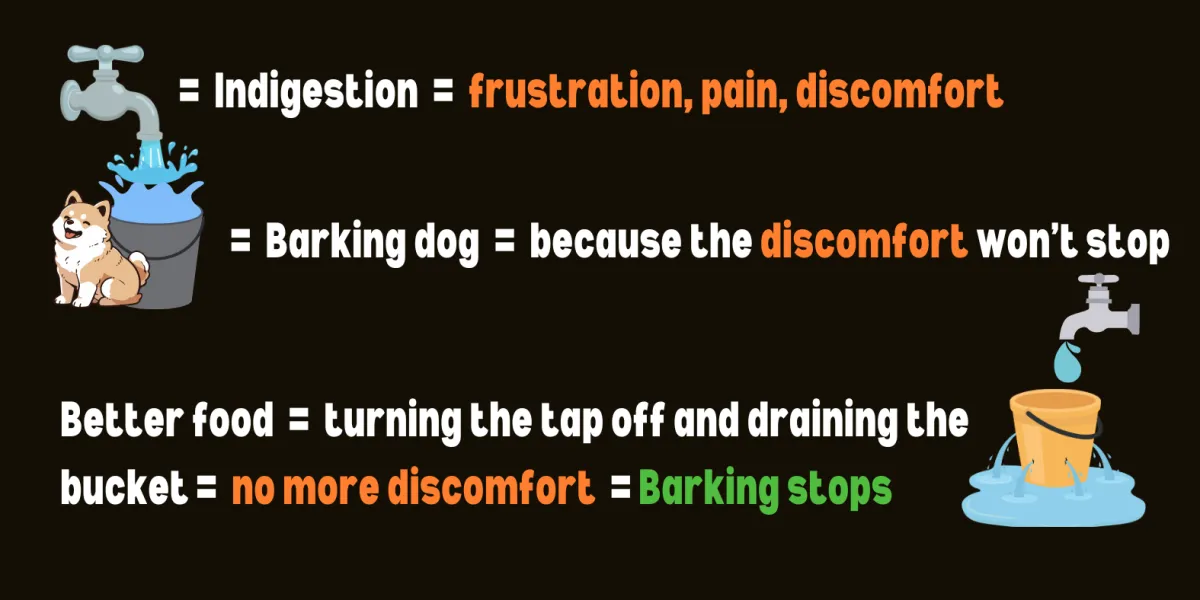Canine Behaviour Assessment
Canine Behaviour Assessment
What Causes Behaviour Problems?
Lots of things can cause behaviour problems in dogs, such as the quality of their breeding, the environment they grew up in and now spend their time in, and the things they do (or don't do) every day.
Any of these situations can make a dog feel glad to be alive or they could make them feel negative feelings, such as fear, frustration or even pain and discomfort.

It's these feelings that can be overwhelming and lead to them behaving in a way that helps them to cope.
Whilst the behaviour may help the dog to deal with those feelings, it may be difficult for you to cope with and may seem to make no sense to you as a human and you just want it to stop.
BUT, it's not about STOPPING a behaviour....
Now we know that it's the way they are feeling that is causing the behaviour, it means that once we identify what is driving those feelings we can remove or change it to enable the dog to feel different in that situation.
So it's really about changing a feeling by changing the situation causing it.
When they feel different they can be different and their behaviour changes to something more acceptable for you and nicer for them.
To help you understand better let's look at the imaginary scenario below.
Imagine a constantly running tap connected to a hose pipe
Now imagine a bucket that the hosepipe keeps pouring into
Eventually the bucket will overflow and the water will pour out over the sides and cause problems
Imagine trying to force a lid onto the bucket to stop the water going everywhere
It won't stay on unless you turn the tap off and stop the cause of the overflowing bucket
If you stop the cause (the running tap) the bucket doesn't overflow and you don't have a problem anymore and you don't need the lid
The 'Stop the Behaviour' approach
So now let's imagine that in a real life scenario the constantly running tap is your dog's indigestion and your dog is the bucket.
The indigestion doesn't stop and your dog's feelings (discomfort, pain, frustration) are getting stronger as a result and they start barking as a response to the way they feel. These feelings are the water overflowing the bucket.
You use an anti-bark collar (as a lid for the bucket to stop the feelings overflowing), which gives them an unpleasant sensation every time they bark.
It won't make the indigestion (the cause) stop, but it stops the barking (the response to the feelings caused by the indigestion)
However the feelings (discomfort, pain and frustration) are still there and now probably getting worse (overflowing even more) because the dog is now afraid to do the thing (barking) which was helping them cope with the overwhelming feelings.
So now they need another coping method - a quiet one - which might be to dig up the sofa instead as that won't trigger the punishment for barking.
Now you have a new problem to stop! And so it goes on...

The 'Change the Feeling' approach
In this option we identify the running tap which is the indigestion and we change the food so indigestion is no longer happening.
This means the dog has no discomfort causing big feelings.
This means they don't need a coping behaviour, so you have no problem to solve.
Much nicer and less messy than spending months trying to force the lid on those emotions which keep being ramped up by an outside cause - the food.

Assessment
Now you might be wondering how would you even know if your dog had indigestion or some other hidden problem.
Great Question!
We need to be good detectives if we are to figure all this out because dogs don't sit in the therapist's chair and tell us all about their problems.
But they do give us lots of clues in their behaviour and you also hold many clues that you don't realise you know.
Our comprehensive assessment is designed to find all those taps we need to turn off so we can drain all the overflowing buckets.
Then we can help your dog to manage their emotions so that you don't have to, by improving the situation so the emotions don't ever get too big to manage.
If this assessment part is not done well you could be making wrong assumptions about the cause of your dog's behaviour, which could result in spending lots of money with no improvement or even making it worse.
If we don't begin from a place of understanding we can't possibly find the answers.
Then those harsh training methods are all that is left for you, and if you are still reading this then I know you don't want that.

Canine Behaviour Assessment
£150
90 minute assessment appointment
Review of vet and lifestyle history
Diet review
Behaviour Observation
Behavioural therapy plan for your dog
Follow up training appointments
£55 per 60 minute appointment
£100 for 2x 60 minute appointments
£180 for 4x 60 minute appointments
